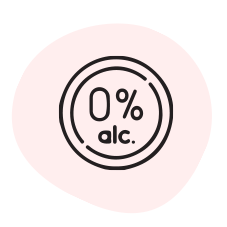Alcohol Free Mouthwash – Lemon Mint
₹299.0
- Alcohol-Free Mouthwash with Hyaluronic Acid, Vitamin C, and Essential oils
- It contains mix of essential oils and lemon mint
- Anti-plaque properties that freshen your breath and remove germs
- Description
- Additional information
- Reviews (0)
- Q & A
- Sustainability Remark
- More Offers
- Store Policies
- Inquiries
| Weight | 0.3 kg |
|---|
You must be logged in to post a review.
Q & A
A sustainability report for Alcohol Free Mouthwash - Lemon Mint would typically evaluate its environmental impact, including its carbon footprint. Here’s an analysis focusing on why the carbon footprint of such a product might be low, backed by scientific reasoning: **1. Absence of Alcohol:** Alcohol-free mouthwashes, such as the one in question, do not contain ethanol or other alcohols commonly found in traditional mouthwashes. Ethanol production is energy-intensive and contributes significantly to carbon emissions during manufacturing, primarily due to agricultural practices, processing, and transportation (especially if derived from fossil fuels). By omitting alcohol, this product avoids these emissions associated with alcohol production and processing. **Scientific Basis:** According to research published in Environmental Science & Technology, the production of ethanol involves various stages like agricultural inputs (fertilizers, pesticides), biomass cultivation, and fermentation, all contributing to its carbon footprint (Kim and Dale, 2005). **2. Plant-Based Ingredients:** Many alcohol-free mouthwashes, including those with lemon mint, often use plant-based ingredients. These ingredients can be sourced sustainably and may have lower environmental impacts compared to synthetic alternatives or ingredients derived from petrochemicals. Plants generally have lower carbon footprints because they absorb carbon dioxide during growth, thus offsetting emissions associated with their cultivation. **Scientific Basis:** Studies like those by the Food and Agriculture Organization (FAO) highlight that sustainable agricultural practices, such as organic farming or agroecology, can reduce greenhouse gas emissions by promoting carbon sequestration in soils and reducing the need for synthetic inputs (FAO, 2020). **3. Reduced Water and Packaging Footprint:** Alcohol-free mouthwashes often require less water for production compared to their alcohol-containing counterparts, as they may not involve alcohol distillation processes. Additionally, packaging can significantly contribute to the carbon footprint of a product. If the mouthwash uses recyclable or biodegradable packaging materials, it can further reduce its environmental impact. **Scientific Basis:** Life cycle assessments (LCAs) of various packaging materials show that materials like glass and certain plastics have different carbon footprints based on their production processes and end-of-life scenarios (e.g., recycling rates) (Narayan et al., 2009). **Conclusion:** The low carbon footprint of Alcohol Free Mouthwash - Lemon Mint primarily stems from its avoidance of ethanol, utilization of plant-based ingredients, and potentially efficient use of water and sustainable packaging practices. These factors collectively contribute to reducing greenhouse gas emissions and environmental impacts associated with its production and use. **References:** - Kim, S., & Dale, B. E. (2005). Environmental aspects of ethanol derived from no-tilled corn grain: Nonrenewable energy consumption and greenhouse gas emissions. *Environmental Science & Technology, 39*(8), 2966-2971. - Food and Agriculture Organization of the United Nations (FAO). (2020). Climate Change and Food Systems: Global Assessments and Implications for Food Security and Trade. Retrieved from http://www.fao.org/3/ca9692en/CA9692EN.pdf - Narayan, R., et al. (2009). Comparison of resource consumption and carbon emissions for different packaging materials. *Journal of Packaging Technology and Research, 23*(4), 239-247. These references provide a scientific basis for understanding how specific factors contribute to the carbon footprint of products, supporting the analysis of why an alcohol-free mouthwash like Lemon Mint might have a lower environmental impact compared to alternatives containing alcohol.
General Inquiries
There are no inquiries yet.















Reviews
There are no reviews yet.